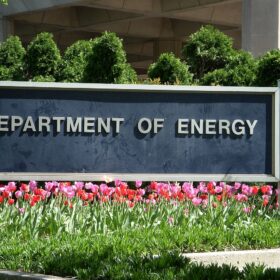How rooftop solar can complicate residential real estate transactions
Many homeowners assume leased or loaned solar systems will boost their home’s value, but outstanding loans often drag down equity instead.
Industry creates model legislation to streamline rooftop solar permitting, grid connection
Draft legislation from Solar and Storage Industries Institute and SEIA provides policymakers with a framework to reduce delays with interconnection and permitting processes for households and businesses.
California’s home batteries are replacing gas plants and saving hundreds of millions
The Brattle Group analyzed a gigawatt-hour virtual power plant test that may be the world’s largest as part of its review of California’s distributed peak-shaving program.
From development to bankability: How accurate modeling can save your solar project
In the high-stakes world of solar development, a project’s journey from concept to completion is fraught with challenges, with financing representing the ultimate hurdle. At the core of a project’s viability lies the energy assessment, where a single miscalculation can jeopardize millions and send a project back to the drawing board.
U.S. solar trade barriers take their toll
The United States has stepped up its use of tariffs on international trade partners, alongside the removal of many renewable energy incentives. Most imports from China are now subject to 30% tariffs and other barriers, along with further measures specific to solar products. InfoLink’s Alan Tu examines key changes in US policy and their likely impact on the domestic PV market.
Can BESS answer U.S. data center power demand?
Data centers’ energy demand is well-documented. Hyperscale AI data centers owned by big-tech companies are placing acute strain on energy infrastructure in the United States, the global data center capital, and many more are expected to come online. There is ongoing debate about how policymakers, grid operators, regulators and the energy industry – renewable or otherwise – can respond to the situation. Battery energy storage systems (BESS) can provide grid-balancing solutions, but not all are convinced they can fully replace gas.
Key takeaways from Roth Capital solar and storage symposium
Last week, ROTH Capital Partners hosted over 50 public and private companies and industry experts during its 12th Annual Solar & Storage Symposium at RE+ in Las Vegas. The three-day event offered perspectives on the evolving policy and market backdrop shaping solar, storage, and related sectors.
Pleasant Valley Solar 2 financing clears way for data centers and high-tech manufacturing in Idaho
Large-scale solar opens doors to economic development in the region.
New risks for U.S. solar
The One Big Beautiful Bill Act (OBBBA), a related executive order and other policy developments introduce new risks to the solar and energy storage industries in the United States. Changes to tax law affect everything from residential rooftop systems to utility-scale projects. Jesse Pichel and Lev Seleznov of Roth Capital Partners examine the key provisions in recent U.S. policy announcements and their likely impact on the industry.
California cuts funding for nation’s largest virtual power plant
With California facing a $12 billion budget shortfall, the state’s lawmakers opted not only against a boost in funding for its flagship virtual power plant program as initially planned, but to not renew its funding all together.















